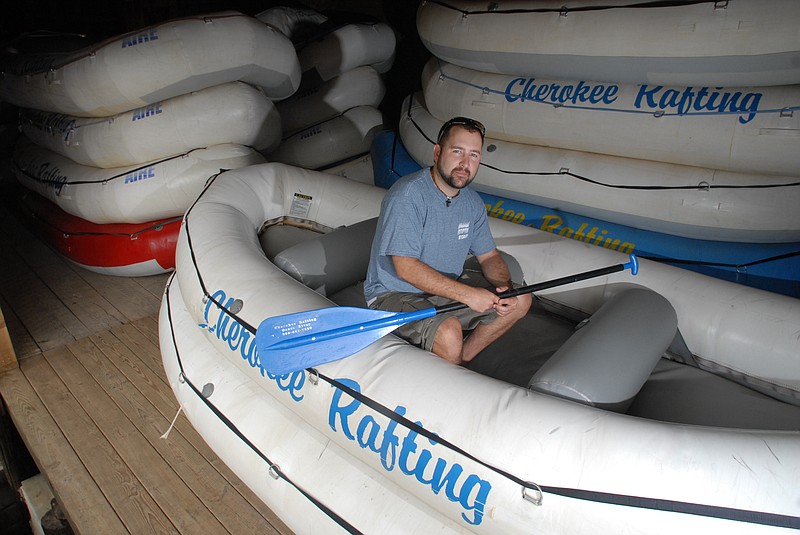In 1976 when TVA's wooden flume line was taken out of service and water returned to the riverbed, no one imagined the Ocoee River would become the nation's most popular whitewater river. An Olympic event in Polk County, Tenn.? Unfathomable. TFP columnist Jay Greeson has joined the myopic culture within the TVA, which is prepared to sacrifice this incomparable recreation resource and the renaissance it has brought to Polk County and the surrounding area. TVA's 800 percent increase in rafting fees for water releases will be the death knell for Ocoee whitewater.
I am employed by one of the first Ocoee River outfitters. The owners of my company are proud, lifelong residents of Polk County. My fianceé and I both work in businesses which are dependent on rafting on the Ocoee River. For that reason, I am particularly concerned about some of the information in Mr. Greeson's column last week, which I hope to clarify.
He goes wrong right off the bat when he assumes water releases are going to affect power rates. The entire benefits of the antique Ocoee No. 2 project are not noticeable in power rates, according to TVA's own Environmental Impact Statement for the project's reconstruction (1979, page C-33). No one's power bill will go up to provide the relatively small number of releases to sustain Ocoee recreation. TVA routinely sacrifices power benefits to support recreation and navigation at its projects without strict reimbursement for lost power. TVA treats whitewater recreation as an illegitimate use of the Ocoee projects because it claims they are single-purpose projects.
I attended the meeting with TVA in 2013 during which TVA quoted the $1.8 million annual cost for water releases. During the meeting, TVA attempted to get outfitters to sign a non-disclosure agreement which prevented us from talking with anyone but them about the fees. The agreement allowed TVA to seek injunctive relief if we violated it. We didn't sign.
TVA said the fees were not negotiable. For Mr. Greeson to assert there is some ongoing negotiation is ridiculous. There is no negotiation; it is no less than a "railroad," to quote one of my colleagues. If there is a negotiation at some point, it needs to be backed by federal legislation with a powerful partner like the state of Tennessee at the table.
To justify his support for TVA's high fees, Mr. Greeson quotes advertised individual rates, which are rarely the actual price of an Ocoee trip. The average price for our company, when discounts for youth, church and similar groups are factored in, is in the mid-$30s range. Yes, you may pay more if you want a seat on a raft during prime time on a summer Saturday, but that's not the average price.
The TVA fee increase would push the fee burden for my company from 30 percent to 40 percent or more of the current trip price. I cannot pass those fees on to my customers without a negative impact on demand. Add state and other fee obligations, and my company cannot survive.
Mr. Greeson asserts we were somehow launching this campaign disingenuously and that we had years to arrive at a solution. The last Ocoee release occurs 3 1/2 years from now. Outfitters cannot invest more than basic maintenance in their businesses until the smoke clears. We can't spend thousands to repair our facilities or upgrade our equipment.
The process to arrive at a solution likely will require TVA to comply with the National Environmental Policy Act. A full Environmental Impact Statement with a comment period and analysis may take two years before a record of decision can be made. A new management plan also may have to be written. Now the Forest Service wants to permit outfitters also so they can collect additional fees, and that has to be sorted out, too.
Perhaps you can see why we need federal legislation if the Ocoee is to survive. I think Mr. Greeson is wrong.
Blake McPherson is manager of Cherokee Rafting on the Ocoee River in Polk County, Tenn.

